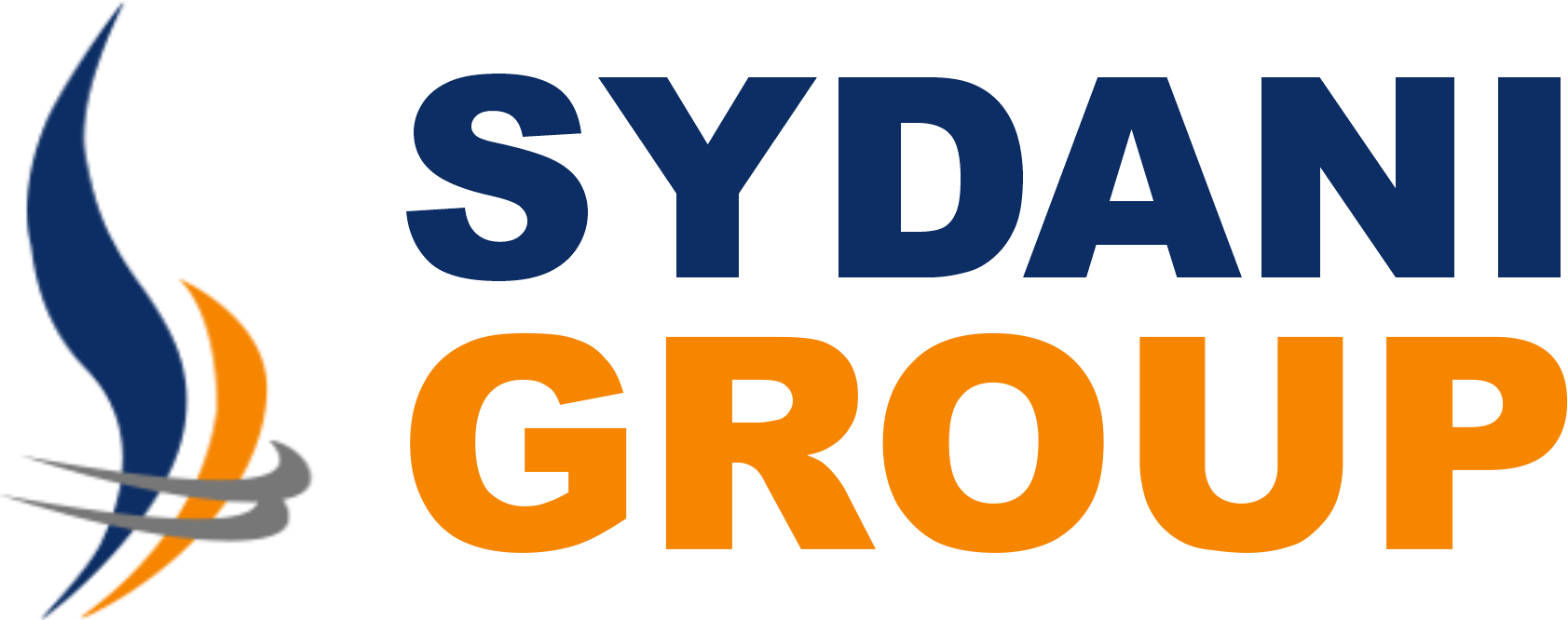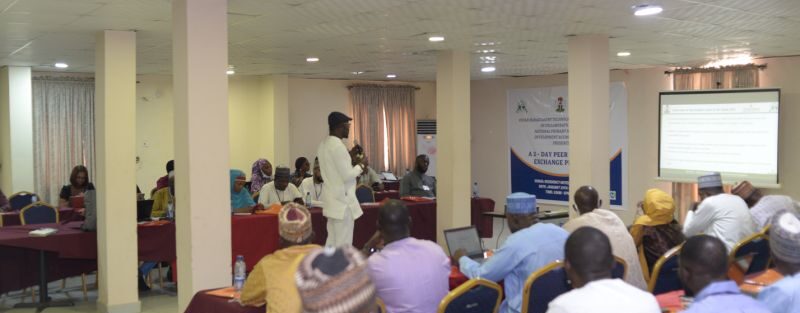Gavi Alliance engaged Sydani to provide technical assistance to the NPHCDA and State Primary Health Care Development Agencies (SPHCDA) with priority to twelve focal states as well as support all other states based on programmatic need and available resources.
This support was aimed at strengthening COVID-19 vaccination deployment and management at the National and State Level, strengthening integration of COVID-19 vaccination strategies with R.I and other related PHC programs, and build capacity of in-state officers to independently manage the COVID-19 vaccination deployment process and outputs.
As we approached the closure of the MTA project and our support to the focal states, a Peer Review and Learning session was held with stakeholders and officers across the states.
At the session, four states – Bayelsa, Jigawa, Kano and Taraba prepared focused presentation based on their experiences through-out the project. Presentations focused on strategies to improving vaccine uptake (Kano), proposed strategies to achieving vaccine coverage in challenging and hard to reach areas (Bayelsa), improving data management system by applying lessons learned from Covid-19 vaccinations (Taraba), and learnings from COVID-19 to improve advocacy for RI (Jigawa). They each shared their peculiar experiences, unique learnings and challenges, approaches taken, as well as recommendations to strengthen future deployment and management of PHC interventions.
Kano state is ranked 5th amongst the top performing states in the country with over 99% of her total eligible population fully vaccinated. Popularly known as a multidimensional state with a total population of over 7 million, Kano is renowned for utilizing vaccines prior to expiration and serves as an off taker for other states at risk.
SCALES 3.0 was flagged off at Kano on the 1st of September 2022, with the state receiving over 17 million antigens. The strategies used in improving COVID-19 uptake in the state included the development of COVID-19 Vaccination Dashboard, the engagement of Adhoc COVID-19 Vaccination personnel, the “Get Vaccinated and Get a hungry-man size indomie” Strategy innovation by the State to attract caregivers, High Level Advocacy Visits/Engagement to Traditional and Religious Leaders, Night vaccinations during Ramadan, Vaccinations at special places Churches, Mosques, Institutions, Shopping malls, & all State borders, Sallah (EID ground) vaccinations, Daily Evening Review Meetings and weekly tracking performance of each LGA, and an Integrated outreach with WHO on TB/COVID-19 Vaccinations, among others.
Bayelsa is a state with relatively harsh terrain with over 75% of the state land mass in riverine and hard to reach areas. Key issues battled include vaccine hesitancy even among health care workers, funding challenges due to high cost of logistics for vaccine distribution, flooding and natural disasters.
Despite this plethora of challenges, the state remained dogged in its commitment to increase vaccination coverage by taking advantage of disadvantages – despite the flooding, the state was able to increase coverage from 2.2% to about 14.5% during the month of July to December. Strategies deployed include; the implementation of outreach and mobile sessions using the catchment areas of proximal health facilities, use of incentives, free medical outreaches, and intensified supportive supervision.
Taraba state, with 358 teams for SCALE 3.0, have 17,474,89 persons eligible for Covid-19. Total vaccinated by call-in-data is 484,710 while total vaccinated by EMID is 488,551. The state presented recommendations for data management system by applying lessons learned from Covid-19 vaccination in the state.
The state reported that the existing electronic information system greatly impacted their COVID-19 implementation positively. It was user friendly, maximized time in data transmission at all levels, maintained confidentiality of client data, provided real time information at all levels, and aided the reception of large amounts of data.
Their recommendations for future interventions include apt supportive supervision by focal persons, prompt rectification of access code challenges, prompt report of challenges by teams, prompt disbursement of funds, and prompt management of staff attrition.
Jigawa is currently the top state in COVID-19 vaccination coverage. The state has recorded a total of 669 confirmed cases of COVID-19 since the outbreak. A total of 8,227,647 vaccine doses were administered, with 5,029,312 fully vaccinated, 1,016,005 partially vaccinated and 120,645 booster doses.
The State won the award for best in covid vaccination and most improved RI performance in the Northwest with 71% Routine Immunization coverage, having vaccinated 274,833 children under the age of one (1).
Research shows that Jigawa state has structured ACSM (Advocacy, Communication & Social Mobilization) that recognizes that sustainable social and behavioural change requires many levels of involvement—from individual to community to policy and legislative action.
Learnings from advocacy drive during COVID-19 vaccination include:
- Ownership and political buy-in from the executive branch led by the Governor motivated LGA chairmen to support and drive vaccination in their respective LGAs;
- Synergy between state and partners, the Primary Health Care agency and Health ministry aided in developing and implementing strategies to improve service delivery;
- Utilization of student COVID-19 vaccination ambassadors created awareness and demand;
- Sensitization of Traditional and Religious Leaders bridged vaccine hesitancy among community members;
- Weekly feedback meetings by the state team to the LGA/ward level through daily performance tracker of EMID and call-in data encouraged teams to deliver on their daily targets;
- Mobile and outreach services were maximized to access hard to reach and remote communities.
Through this Technical Assistance provided by Sydani, the SPHCDAs and NPHCDA continue to record milestones. We remain committed to providing such support to relevant government teams to improve COVID-19 vaccination deployment across the country.




